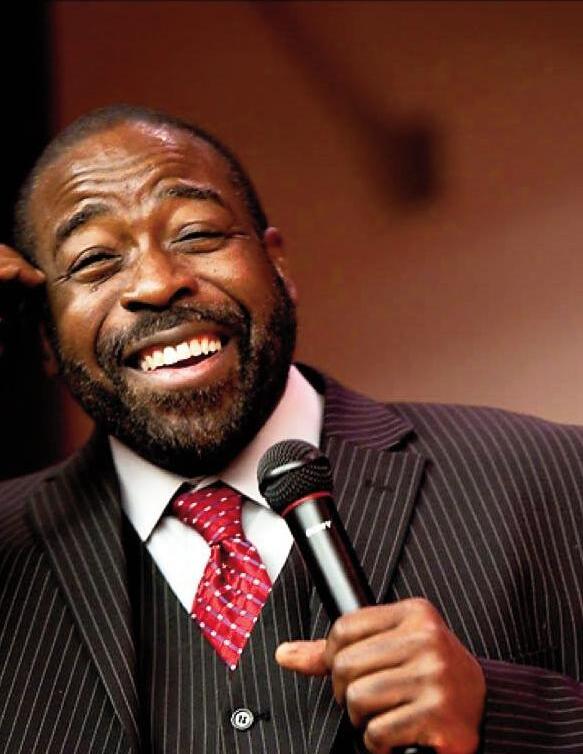
24 minute read
h W o r l d L e a d i n g & A d o p t e e , L e s B r o w n
ever hope to be, I owe to my mother. Mama was really something else
At what age were you aware that you and your twin brother were adopted?
Advertisement
Mama told us when we were 18.
Are you serious?
Yes, that's when we found out But it had happened one other time Mama told us when we were 17 about to be 18 because at that time we were her foster children and then she had to sign the documents to legally adopt us.
I'll never forget when I came home and my brother met me at the door. His eyes were red and he was crying He said "Leslie, guess what? We are adopted " I said "Is that right?"
I remembered when we were 9 years old a guy in the neighborhood said "Leslie! You and Wesley didn't come out Ms Mamie's Stomach" You know how children are So I ran in the house and said "Mama, he said we didn't come out of your stomach" She said "Tell that fool to shut up!" [Laughter]
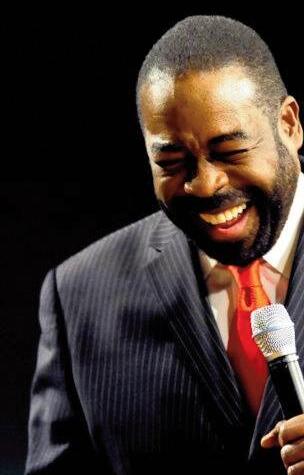
So that was her way of dealing with it?
That was her way of dealing with it, but I could remember different times when Mama would say "Leslie and Wesley, come here I want to tell y'all something" and I can remember the tension and the stress around those quiet moments She would call us in the kitchen; Mama cooked a lot, and she never was able to tell us at that point of time I knew that the other children were adopted but I didn't know about myself
I have mixed issues about that because some people tell children early on, and then they tell them later on With me it doesn't really matter. I have friends who have gone on searches; and I have helped people to do searches for their biological parents. My mother's love was so encompassing, I just never felt, even after I knew, and my personality is so much like her, I just never felt a void and I never felt a need to try and go back to find my birth mother or birth father.
I have been curious and wondered 'what kind of dude was he, my birth father?' But it's not something that drives me crazy as I've seen some people where it really effected them to that extent
When I had my television talk show my staff tried to get me to do a search because there were people who would call and try to say they were my mother or father just to try to get money out of it The trails would only go so far then turn cold.
The story has it that my biological mother had a relationship while her husband was away in WWII and she became pregnant and had us before he returned So I just can't imagine somebody, under those circumstances, putting down accurate information so they could be followed up on. Therefore the information that's on the birth certificate is fictitious People don't know that I used to wear a blue shirt when I'd speak because when Mama picked us up we were wrapped in a blue blanket.
You know, one of the things you said I think really is the key because I do know of people who have done the search, and I know people who have not; but one of the things you said was her love was so encompassing --did I say that right? Her love was so full, so real, and so embracing for you, to paraphrase
Yes, it really was, and I was a problem child That's why I say "When things go wrong, don't go with them". Because when I was in the 5th grade I was identified as EMR-labeled Educable Mentally Retarded, and they put me back to the 4th grade; then I failed again in the 8th grade So it was very, very challeng- ing, and very embarrassing and demoralizing as a kid coming up because my brother was very bright, very smart-he's smarter than I am now--, and quiet. I was very loud and ignorant! [Laughing]
As a motivational speaker it's very interesting for me because I help people head, she said "I'm gonna whip his behind ain't nothing wrong with you boy" So she obviously had something right back then.

I had the whole experience of being great and grateful. My mother made me feel like a great person She cultivated a sense of goodness in me and she said to me constantly 'You're going to be somebody You're going to be something You're gonna be great one day' in terms of knowing who you are. I always felt that I was special to my mother She made me feel special, even when she whipped me; even when I got in trouble; even when people said "You ought to take him back to the Welfare Department because something's wrong with him--he's touched in the head"; even when they called her to the school time and time again. and work with kids and train with kids, taking them through an experiential process to change their subconscious mind; and while I'm talking about it I think about my mother because my mother always thought my subconscious mind was in my behind When they told her I was a little touched in the
Mama only had a 3rd grade education so when they told her I was EMR she did not understand and process that to the extent that most people who are more educated would, so she didn't really buy into it She said "You are going to be something great!"
In my book "Live Your Dreams" I have stories about that. I never will forget the first time she came to my Spanish Class, I didn't know they had called Mama and told her to come to the school So they asked me "Mr Brown, what does Como esta Usted mean? I said "You have a Spanish Dictionary, why don't you read it yourself?" The kids in the class cracked up! I love to make people laugh even to this day. Now I get $25K an hour to make them laugh, and I laugh at myself!
The teacher looked toward the door and I did not know my mother was standing outside the door. Then the teacher said "What does 'Buenos Dias' mean Mr Brown?"
She wanted me to become a lawyer for some reason or another, but I didn't become a lawyer, I became a law maker I was a State Legislator in Columbus, OH, so I wrote laws that lawyers interpreted I had the capacity to do that despite having been in Special Ed. After graduating from high school my brother went off to Vietnam, but I failed the military test. I was told you have to a special kind of dumb to fail that test So I stayed to take care of Mama, and did not go off to school.
It was really a defining point in my life
I told her "Why don't you tell ME? That's why they pay you " At that moment Mama came in the classroom and she had a belt. I said "Oh my God! Ask me again!" I was bilingual by the time I got out that class! I was jumping over chairs and everything! So I was good after that!
My brother never got in trouble! I use to say to him "What's wrong with you? Why don't you do something? They think I'm crazy!" He said "You ARE crazy!"
I just wanted to comment on your saying you were too dumb to pass the test I believe that there was a bigger plan and purpose for your life. I believe God knew the plan He had for your life and it wasn't intended for you to go into the military. When our children have situations in their lives, I think a lot of times a parents' goal is to mold and shape this child's life and make them what THEY want them to be; but we need to realize You know this probably better than I do, but the quote by Khalil Gibran?
Yes, "Our children come through us not from us "
That is a real, real struggle. I never refer to myself as such, but I have two of my children who are adopted I have to say I've found parenting to be such a humbling experience I believe that if there's no other purpose for being a parent, it is to bring you in closer relationship with God It's such a powerless and helpless experience to have influence and impact on other youth, and not with your own children I've constantly said to myself "Mama I know what I took you through and I'm so sorry", and I cry thinking about the nights she laid awake thinking and worrying about me "
Fortunately I never gave up because of coaching from people such as yourself, and learned to detach myself in love and realize I could not run their lives, and realize they were building their lives, and that all I could do was love and pray for and believe that at some point what's inside of them will rise and they will come to themselves just as I did. Finally something Mama said clicked in and it created a hunger and a drive to do something that would make her proud of me
I got out of high school by the skin of my teeth, and whenever I would feel discouraged and feel like giving up on myself I would have a picture in my head of my mother being on her knees scrubbing people's floors and toilets to bring food home from the families' leftovers Although I was appreciative, my dream was to be able to bring groceries home for our family. We wore the hand-me down clothing of the children Mama babysat for Just thinking about how she sacrificed--she was a gorgeous woman who at 46 decided to adopt SEVEN children I decided I've GOT to make something of myself.
How could this woman who did not have us, did not bear pain for 9 months to bring my brother and me, do this for us? With all the hell I caused her, how could she still love me unconditionally?
What do you believe was your mom's motivation to adopt?
You know when I had the talk show she was interviewed by a reporter and I was in the kitchen pretending not to listen, because I'd always been curious about that. I found her to be a very intriguing woman; and she said "I've always wanted to share my life with someone " My mother had a brother. They weren't raised together and she only saw him once or twice She was raised by her father and left home when she was only 12
Most people may have never noticed, but I used to wear a blue shirt when I would speak Mama said we were wrapped in a blue blanket when she met our biological mother and brought us home
Children usually have some perception of the family dynamics changing when other children come in. How did you feel about her adopting the other children?
There was no opportunity to have a feeling [Laughing]
Mama's dominance of love ran the house She never did "favorites" She treated us all the same. She would not give one of us something and not give the rest of us something Because she treated us all as if we were special and she taught us to look out for each other and love one another unconditionally
One of the things which is very important in the marriage of adoption is you've got to have a short memory if you want to really make it because Mama said things to me when she was angry that I know she did not mean and I forgot them I also did things that would be mean and Mama forgot them I learned that from Mama.
When I saw my brothers or sisters didn't show appreciation I'd try to show her by saving my bottles and copper and collect junk for money to go to the store or downtown to buy her stuff, like a lamp or some bloomers! That little touched one in the head went and bought some big pink bloomers for his Mama! "I wanna buy these for my Mama" [Laughter]
See, she couldn't help but love you! That was her baby!
Is that right?
Something I wanted to ask you about which I spoke of in my book as a single adopt parent who became engaged and whose sons had a very difficult time accepting a male figure coming into our lives What was your response to your mom having a man in her life?
When I was about 9, Mama had a friend we called Daddy John L. They never married, but he was a very nice guy I knew Mama had boyfriends at different times but I knew this one was a man that was serious because she brought him home She didn't have men coming in and out.
He'd come by--he never spent the night at the house--to look at television together and I would sit between them I'd say "Mama what we gon' watch tonight?!"
I was blocking! You understand?! Can you feel a brother up in here?! Oh my God forgive me Mama! I know she wanted to knock me out!
He was so kind and so considerate and so much fun; and he liked us He took time out to do things with us I worked with him, he use to cut grass and I became very good at it and was a gardener for many years So it was a very good relationship for all of us. It was not a negative factor.
I've heard such tragic stories over the years of people who were adopted and mistreated by their adoptive parents and their friends. Fortunately, thanks to God, that was not my case.
I'm curious to know if your and your brother's perceptions and reactions to being adopted were the same or even similar.
Interestingly, my brother and I only talked about it briefly Once, when we were 18 and Mama had to sign the papers to have her name placed on our birth certificates, make her our legal mother, and our original birth certificates were sealed. We never had the conversation again until Mama died. And let me tell you, our conversation is never about our adoption and our invisible parents, the conversation, interestingly enough how was our Mama, until the day she died , was able to keep those papers hidden from us, then somehow the day she passed she'd left our birth certificates out.
I found out my original name which was Calvin, and my brother's original name was Alvin We'd talk about that but never about being adopted
Her love was so powerful. She was a funny person and she was wonderful
The issue of adoption is more than "and they lived happily ever" story There are lots of issues and emotions which come up for all of the family members involved: the biological and adoptive families, the adopted and biological children, and even the extended family.
As Mr Brown shared, the love he experienced from Ms. Mamie touched his heart and left an indelible mark which has transcended throughout everything he's been through in life.
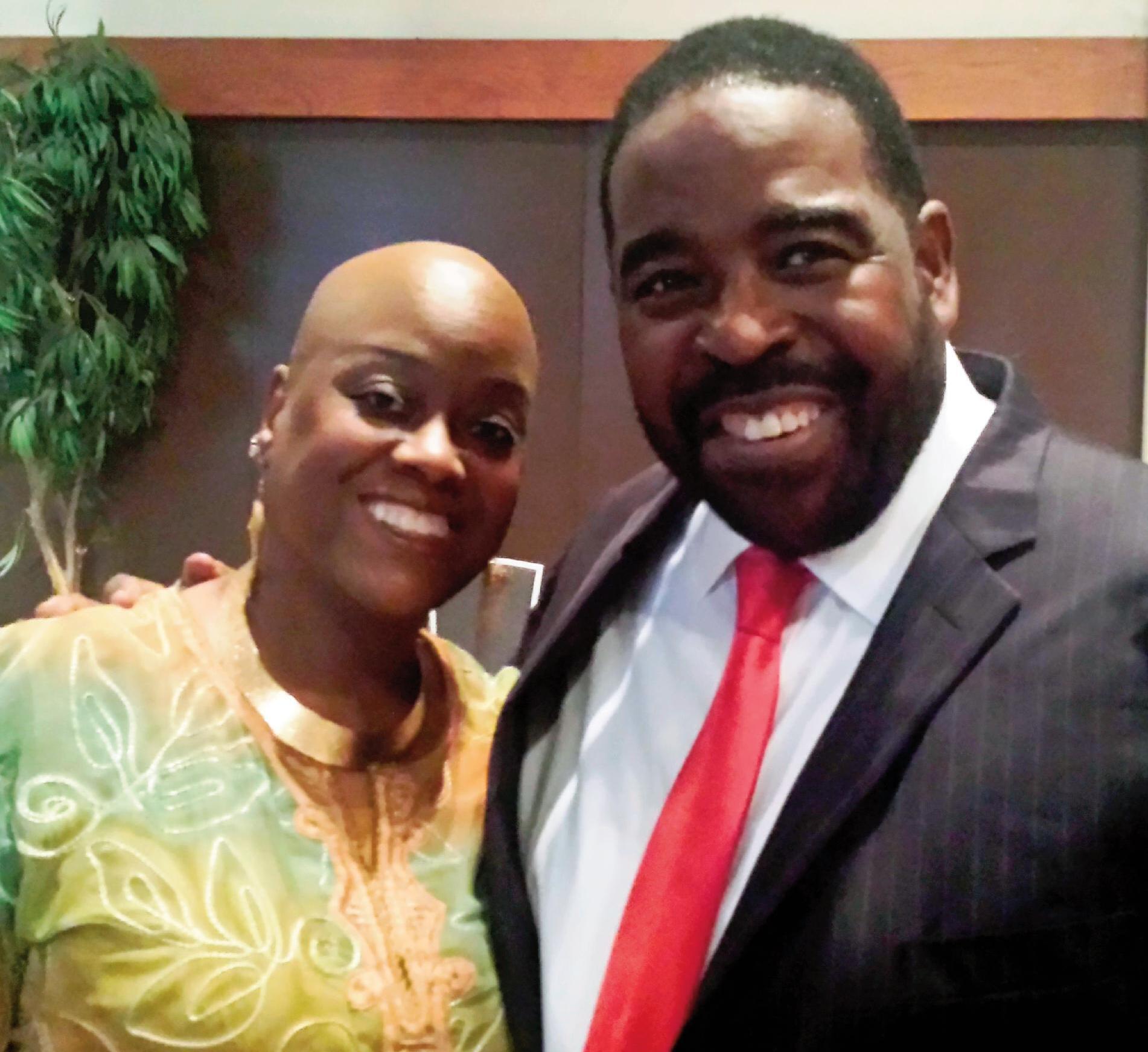
When we speak of doing something special "for a child's heart" we're not just speaking about childhood, but about the inner child of adulthood as well. It may not be easy but the ultimate goal is that children's hearts are made to feel warm, and they know they were loved despite all of the challenges of growing up
It is my hope that as "villagers" we touch children's hearts, so that when we're long gone and they become "the village" they can always have some remembrance or sense of feeling loved
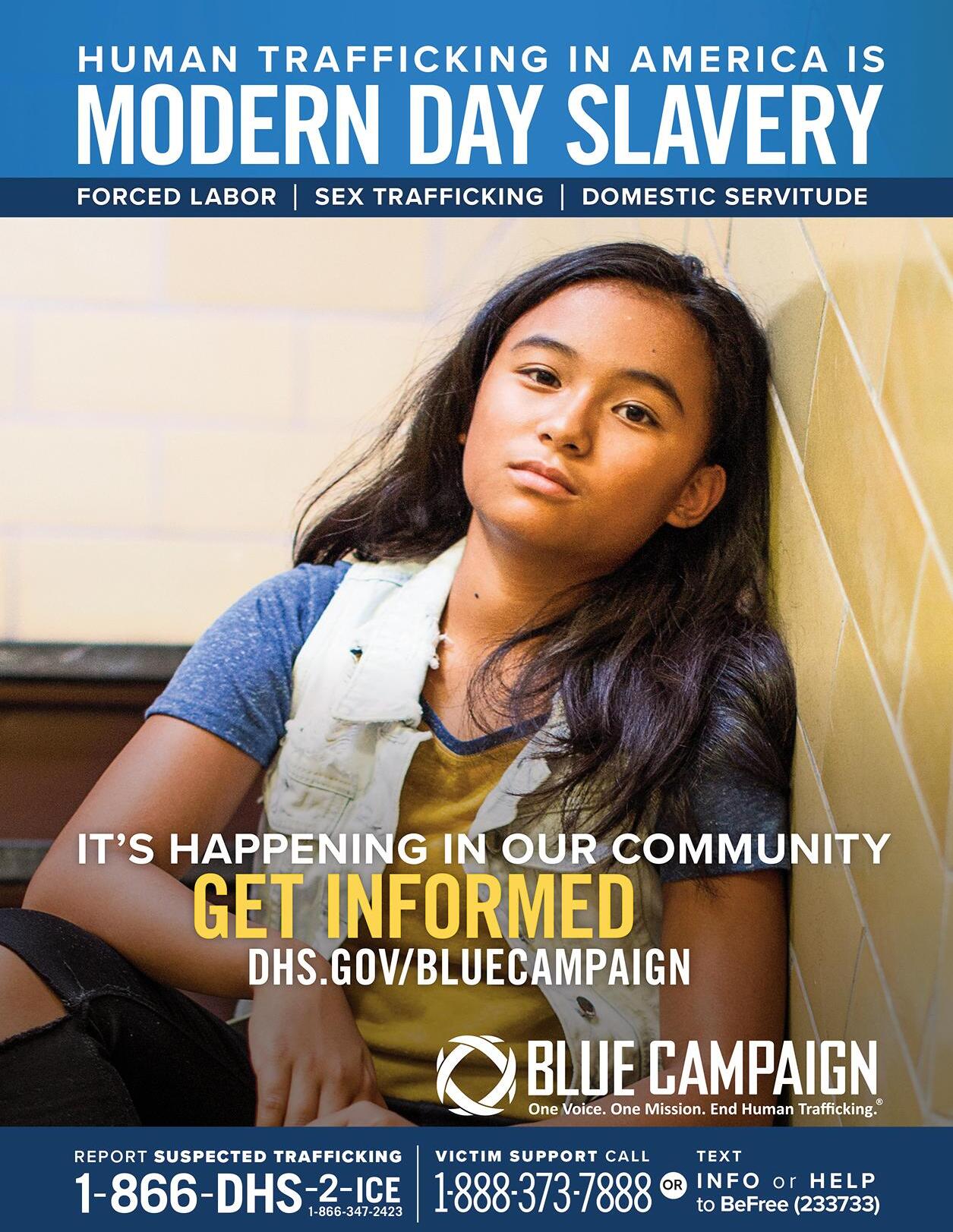
By Chris Chmielewski Foster Focus Editor
At present, the world is being bombarded with exposed open secrets. Happened in Hollywood. Happened in Government. Happened in the world of Comedy.
Foster Care is no exception We’ve got a secret that we all know about, but dare not speak about
Since the beginning of an organized foster care system, there have been two things; kids and missing kids.
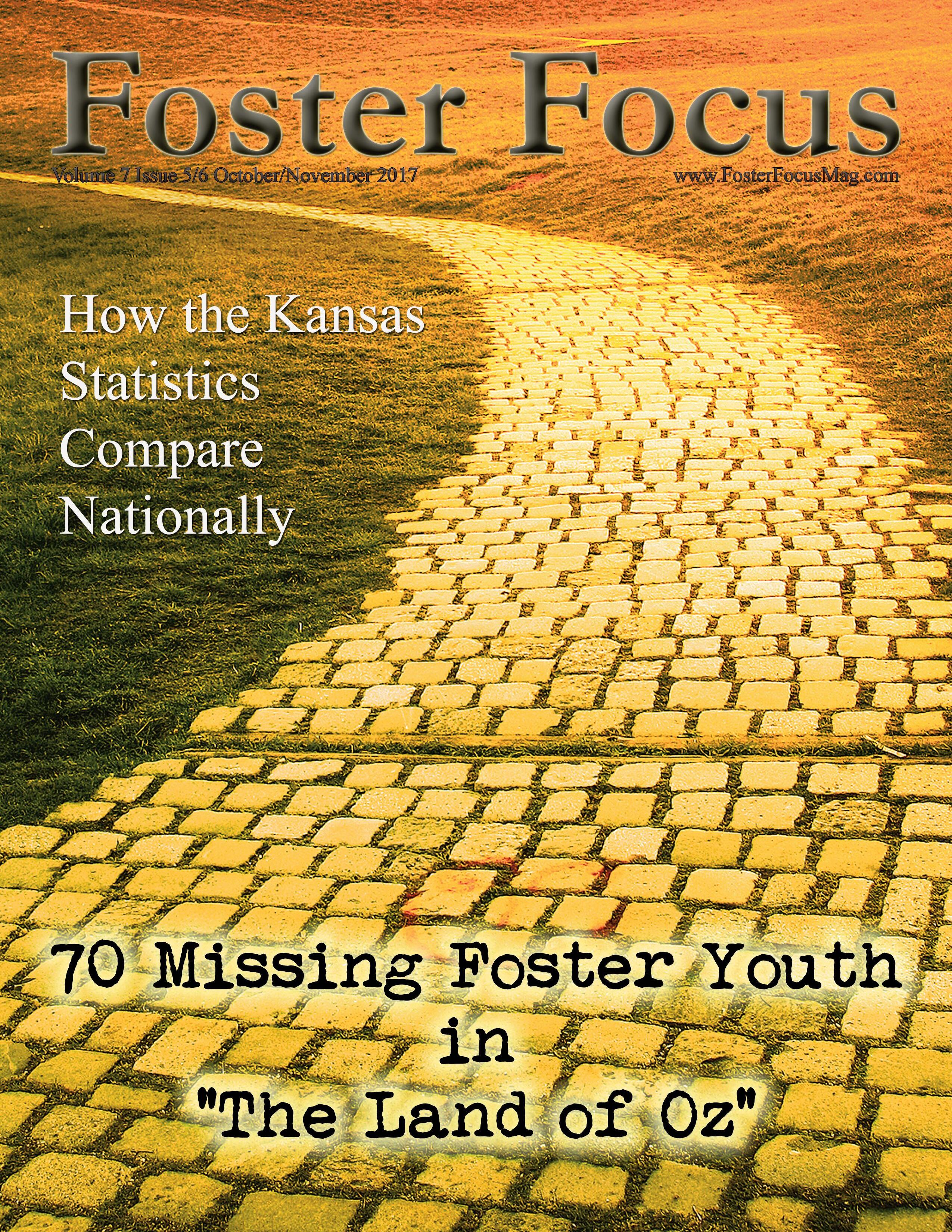
A Kansas child welfare task force meeting decided it would be the venue to let the cat of the bag, but those of us in or around the system already knew. We already knew that kids went missing. We knew they run away. We knew about botched or incomplete records We knew about clerical errors We knew about (mild wording) unintended reunifications where the family felt that the child had spent enough time in care. So, they just came and took them home. We knew about all these things. What the meeting and a pointed line of questioning did was put a number on our dirty little secret; 70 missing youth, double the previous year ’s count and a show of unawareness on the part of the top-tier of the foster care system
Kansas, the land of Orphan Train stops would come back into the limelight for yet another child welfare related issue. This time, they had to explain where all their kids were They couldn’t do it
From there, this Editor began to stand in the deluge of requests to cover the story. As you may know, I am in a unique position as both, a former foster kid and as the editor of a national magazine on the subject In addition to that, I happened to have met with the Secretary of Kansas’ Department of Children and Families, Phyllis Gilmore, in person, in Kansas
As I am known to do, I traversed the country on my annual rounds about 2 years ago. I was invited to sit down with Sec Gilmore while passing through the Sunflower state Our time was only an hour, but we covered a gamut of topics. Runaways came up briefly It isn’t my place to judge what type of person someone is, only their qualifications and skill level On a whole, Gilmore knows her stuff She’s well-informed on her job and its many facets.
This makes the events during that child welfare task force meeting all the more perplexing When posed with a question of missing foster youth in the Kansas system, Gilmore appeared lost, ill-informed Not the poised, confidently informed that rattled of stats and case examples to me for 60 minutes.
As mentioned, missing foster youth is foster care’s open secret. For over two decades the number of cases one could deem as a missing youth case dangled around 10%. For someone within the system, 10% is less of an alarming number and more a show of improvement from staggering numbers in the 1990’s But as Author, Shenandoah Chefalo is quick to point out, if 10% of your town disappeared tomorrow, you’d spend the day trying to find their whereabouts You’d be panicked
To an outsider, 10%, or 4600 missing foster youth nationwide, is reason for 4600 Amber Alerts. That’s a justified reaction What those within the system know, that perhaps the layman doesn’t, is, the many routes a foster youth takes to become a missing case
There is a real chance that the tone of this article will veer to the side of either the kids who have been classified as missing, or to the people designated to care for them My unique background has weighed heavy as I write this piece
This is my eighth attempt at writing a balanced review of what happened in October of 2017
Full Disclosure:
I was a runner. I had errored paperwork. I had a caseworker that counted me among 25 other kids
I am also a “success” story I am also a colleague I am the observer of all things foster care. I am a confidant to those who work in this field I am to always be the voice of reason I am the one who needs to present all aspects of a story to my readers
So, I’m coming into this with eight kinds of baggage Probably the reason for the 8 drafts of this article
I attempted to write an emotionless, objective look at this story That isn’t who I am. That’s not what’s expected of me. I’m told readers want my perspective on these issues they ask me to write about myself, as opposed to one of the more talented Contributors that Foster Focus gives a platform
Would I be more comfortable with one of the NY Times Best-Selling Authors or one of the dozens of seasoned foster care advocates who contribute to Foster Focus to pen this important article? Of course, I would. If not for the overwhelming requests for me to tackle it, that is exactly what would have happened. The support the magazine gets needs to be reciprocated, this is how I can accomplish that
But my writing style is conversational
It’s not emotional or stiff The magazine, at least the content I provide, is meant to feel more like a salon in my living room And my job is to keep you interested while cramming as many facts and figures in front of your eyes as you’ll allow Now that you know all that, let’s get into the problem in Kansas and the moreover, foster care, nationally
Using Kansas as our touchstone, we will walk through this apparent epidemic.
We’ll start at the start A child is placed into foster care for various reasons, most of which have very little to do with them or their behavior The top two reasons a child enters care are abuse and neglect Once in the system, attempts are made to find a family member who can care for the child. When that step is unsuccessful, a foster home is sought In many cases, a foster home is not available, and a child may find themselves in a group home, juvenile holding facility, a motel or in some cases, an office.
Once housing is established a new set of circumstances arise. Compatibility tops the list of concerns in a traditional foster home For group homes and detention centers, survival depends on the facility Can the youth adapt to either the more subdued setting of a traditional foster home or the intensity and claustrophobia that detention centers or, to a lesser extent, group homes, becomes the question that determines their outcome.
Make no qualms about it, foster care sucks. It’s dismal, traumatic, life altering and one of the more intense experiences a person can have in their lives Even if Donna Reed were your Foster Mom or your group home was in the Chateau Marmont hotel in Los Angeles, foster care would still be traumatic. Remove everything that occurs when a child becomes a foster youth, it is still a child being taken from their family. There are few things more traumatic
This is where we introduce the idea of runaways
For this, I’ll go to experience. This is what it feels like when you live somewhere that isn’t your home; foreign and crushingly uncomfortable. I ran before, during and after foster care I am what you call a runner The first few times I ran from foster homes it was for thrills and to see friends from home Later it would become a way to avoid dealing with a less than ideal life. Back then, removing myself from the situation seemed like the best course of action Foster youth of today are no different. Running away is still the move of choice for a great deal of foster youth, specifically teens in care. Children in foster care are twice as likely as other children to run away
Runaways account for 90% of the 70 cases with a foster youth deemed missing in Kansas according to a statement by the spokesperson for KVC Kansas
The contract for Kansas’ foster care system is held by two contractors (providers) KVC Kansas and Saint Francis Community Services They split foster care in Kansas 50-50. Every thirty days, these contractors report back the Kansas Department of Children and Families. Those reports are accessible at any time When a foster youth runs away, the contractors are required by law to report it to the local and state authorities
So common is the practice of running away that caseworkers nationally tell me they encourage foster youth to call in if they runaway. These calls are generally of the well-being variety and rarely include a location
Where are they running? Home, mostly
Even though life at home may have been a mess, it’s their mess and that’s where they would prefer to be They also run to friend’s homes
There are some scary scenarios as well It is a well-known fact that foster youth are highly susceptible to human trafficking They are also at risk for committing desperation crimes and other poor choices. Some of these kids run from one problem, to a much bigger problem In 2013, 60 percent of the children who were victims of child sex trafficking rescued from a FBI nationwide raid conducted over 70 cities were children from foster care or group homes These children were found in hotel rooms, truck stops, and even homes.
As an example of this epidemic, I cite the several raids throughout the country in the weeks leading up to the release of this article The sum total of recovered lost or missing youth reached over 80 children A more thorough tally of the victims was not readily available, though you can presume a number of those children found their origin within the foster care system This is the danger a portion of that 90% rate of runaway foster youth face when they leave the eyes of the system They don’t all run home. Some of those friends they escape foster care to join aren’t always the kind of kids you would invite to your Sunday dinner. Exposure to some of the seedier realities of life are alluring to someone who feels cast off from society. The want for a family, any family, runs strong in those who have gone through trauma
It is difficult to breakdown that other 10% of the reported missing youth As difficult as it may be, one can make assumptions based on decades of foster care data There is something that needs addressed before this area of information; the lack of current information
It’s something
those
Work In Foster Care
or its advocates find frustration with I am no different While I can tell you what product Target shoppers bought the most of this week, I cannot give you an accurate count of kids in foster care this year. As a community, our statistics are woefully behind One to two years to be exact Granted, foster care is a huge system, as many moving parts as any of industry, but the inability to collect and distribute up to the minute data certainly hinders any attempts to improve or streamline a system in such dire need of those improvements
Without that crucial data it’s near impossible to pinpoint how that other 10% of the missing cases became classified as such Previous data will be utilized to make some educated guesses
Some of these missing foster youth cases involve the biological family retrieving their children This type of incident is easy to explain, it’s exactly what it sounds like. Not every foster care placement is met with compliance As traumatic as foster care is for the child, it may be equally traumatic for the parents from which they’ve been removed Not every parent is content to let the process play out and wait for reunification I can cite a story from the first year of the magazine that garnered national attention.
It happened at a group home in New York City, (but do not let the setting give you the impression that this doesn’t happen in every corner of the country, it’s not an issue exclusive to urban population) the parents of seven children in the care of the group home had decided they had enough of listening to the state’s orders During an onsite visit, in plain view of several staff members, they sent a child or two at a time to the vending machines where they slipped outside the facility to a waiting van. They continued that pattern until everyone made their way to the van They were apprehended several days later in another state, their forced reunification cut short
The last possibility, though a rarity, is erred or misplaced paperwork This is an area that has become a decreasing problem area with improvement of computer data system However, if foster care is behind the population in terms of data distribution, it’s nearly in the Stone Age when it comes to technical prowess Foster care is government run, the government still uses programs found on floppy discs In this area there is hope A new generation of foster care workers and advocates have risen with force in the fight to update this antiquated system of data collection, in- cluding the way the dozens of agencies involved in the system on a state, national and local level communicate with one another. Hackathons designed to experiment and improve existing systems have taken place with increasing frequency over the last decade.
What is evident is that those on the frontlines of foster care are giving it their all, much to their own frustration Heavy caseloads, uncooperative clients, miscommunications, self-care issues and of course, runaways, weigh heavy on the average social worker/case manager. A large turnover rate of employment can also hinder progress being made to curb issues that effect foster youth. Consistency in any field is crucial for the evolution of that field Foster care stands little chance of addressing its issues when the faces making decisions keep changing
With all the facts in front of us, let’s explore what brought on all this scrutiny
It was to be a run of the mill meeting of a Kansas child welfare task force in early October Their task; explore areas of concern, tend to new business, a general look over of the state system It was the answer to a question about a specific case that drew the ire of the task force, the media and eventually, the general public The answer, or non-answer to that question led to further inquiry.
Foster care contractors were called upon to provide information during a meeting of an oversight panel at the Statehouse in response to questions about the disappearance. A routine question about a case of three missing youth from Tonganoxie, a small-town east of the state capital became anything but routine
The girls, sisters, aged between 12-15, had gone missing from their foster home months earlier When asked about the case, Secretary Gilmore acknowledged she was unaware of the case Outraged, Senators called for further
The oversight committee’s questioning garnered national attention. The idea that the head of the department charged with the care of foster youth was an aware of the missing children in their stead Most vocal and seemingly, most offended by Gilmore’s lack of awareness was Democratic Senator from Topeka, Laura Kelly, whose question to Gilmore spurred the flurry of outrage
“I am flabbergasted,” Kelly said “I used to work in this world years and years ago and I understand that where you have teenagers, you will have runners and they will go and they will do this kind of stuff. But the fact that the person in charge of the wards of the state has no idea that these kids are missing from her custody is just astounding to me”, said Sanchez of the situation
The contentious meeting lasted several hours with all the key players fielding questions. Their answers did little to satisfy the committee “If that from the department’s sense is an OK number the 1 percent stated, if that’s acceptable, if that’s within tolerance what are we doing about it?” said Rep Jarrod Ousley, a Merriam Democrat. “Where are these kids at? Who’s looking out for these kids?”
Gilmore’s response was stern; “You heard everyone expressing that it is extremely concerning and worrisome, especially when many of them are teenage girls in the light of the issues surrounding human trafficking,” Gilmore said. She cited the 90% runaway rate, noting “these children who run away are not under lock and key; they are generally in family foster homes, older youth, who attend school and activities, and they often miss their biological families," she said “So, it isn’t always a tragedy, but some certainly can be and that’s why we have to take it all very seriously ”
Calls for Gilmore’s resignation were immediate She resigned her post December 1st In her departing statement Gilmore wrote; ““Together with the Brownback Administration we have built a legacy that promotes independence, encourages personal responsibility and protects the children of Kansas that will endure for years to come ”
A new Secretary was appointed shortly thereafter by Kansas Lt Governor Jeff Colyer. Gina Meier-Hummel, who will be leaving her post as the director of the Children’s Shelter in Lawrence and has been involved in Kansas’ social service system for decades was named as Gilmore’s successor
She joined the Children’s Shelter in 2015 Prior to that, she served in positions within the Kansas Department for Aging and Disability Services and DCF She spent more than a decade working at KVC, one of the state’s foster care contractors DCF oversees the foster care system in Kansas
She announced an era of a “new transparent agency ”
If one can look beyond the headlines, it may appear that foster care has a runaway problem, an accountability problem or at the very least, systemic problems that may never be resolved
In the end, we are back where we began; foster care is a system in need of repair. Most of those 70 missing foster youth in Kansas and the 4600 nationally are still missing The system is still in dire need of upgrades in all facets and we are still left with a lack of answers
For Kansas, there is hope in a new leader, new innovations, stricter organization and motivation to make improvements. Nationally, there is a wave of optimism that technology will aid in leading the system to a path that ends in less foster youth being unaccounted for and a streamlined system for protecting our nation’s youth











